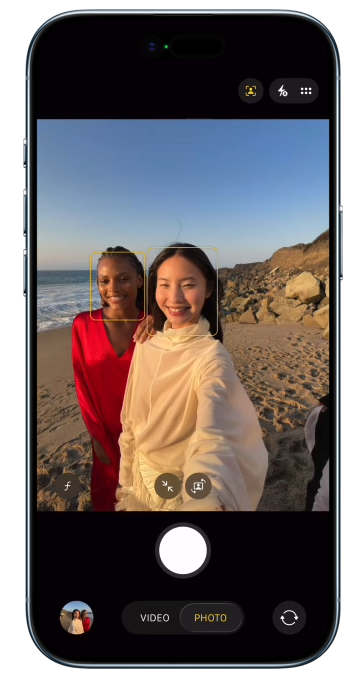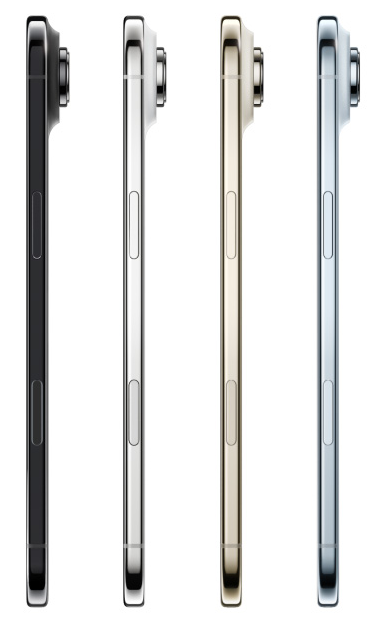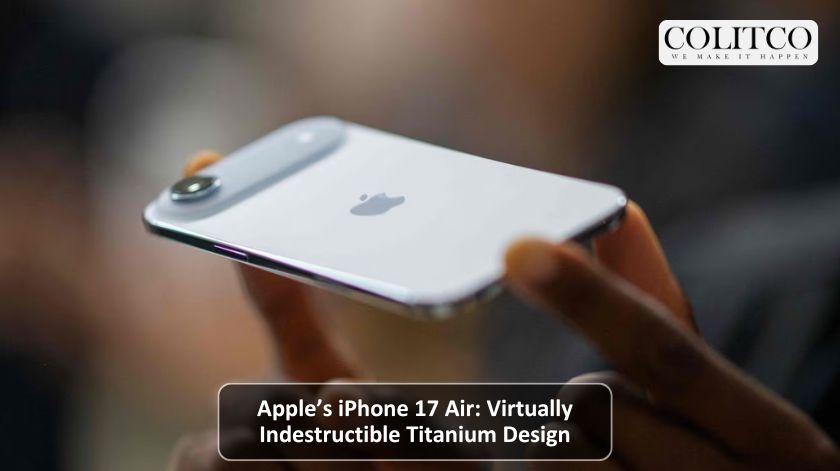In September 2025, Apple released the iPhone 17 Air, and one of the new features was the titanium frame that is unique to this very thin phone. Apple chose to make a turnaround and place aluminium frames in the standard iPhone 17, iPhone 17 Pro, and iPhone 17 Pro Max but use titanium in the Air edition. This is a tradition since Pro models received quality materials and it was a very big change compared to the 2025 release.
Titanium’s Engineering Superiority
Titanium guarantees a long life span in thin bodied phones such as the iPhone 17 Air, which is around 5.5 to 6 mm wide. In such a narrow form factor, aluminium is unable to offer the necessary strength. The rigidity of titanium does not allow bending or internal damage, which delivers high tensile strength and impact resistance in the usual application.
Industry analysts highlight titanium’s superior durability and scratch resistance. The titanium frame is engineered for rigidity, even during drops or stress tests. Apple’s tests classify the device as Class B, withstanding up to 180 falls, placing it among the most robust smartphones on the market.
Design Specifications and Statistics
Apple designed the iPhone 17 Air with a focus on weight and thickness. The device weighs 165 grams and maintains a body thickness under 6 mm, making it the thinnest iPhone yet. Titanium’s strength-to-weight ratio enables Apple to deliver a slim yet durable product that suits ongoing trends in consumer demand for lighter devices.
The frame uses Grade 5 titanium, known for its industrial applications requiring maximum durability. Apple combines this with the “Ceramic Shield 2” glass on the front and back, delivering three times the scratch resistance compared to previous models. The device meets IP68 standards and can withstand immersion up to six metres for thirty minutes.

iPhone 17 Air is the thinnest iPhone ever made
Features That Reinforce Durability
Apple pairs the titanium frame with high-performance features that reinforce the device’s durability. The Super Retina XDR OLED display uses anti-reflective coating and Mohs level 5 protection, resisting scratches and adding to the phone’s resilience. Apple introduced the new Centre Stage front camera, offering enhanced selfie features and reliability under tough handling conditions.
The iPhone 17 Air supports MagSafe and Qi2 wireless charging with 50 percent charge in thirty minutes, demonstrating the efficiency of its design while maintaining structural integrity. The Li-Ion battery lasts up to 40 hours with a lifecycle of 1000 charge cycles. Apple enables satellite SOS messaging, showing confidence in the phone’s ability to withstand external stressors during emergencies.

Apple introduces Centre Stage front camera
Apple’s Announcement and Commitment
At launch, Apple stated, “We engineered iPhone Air to be thinner and lighter while demanding more from the materials within”. The company explained that titanium allows the most significant leap in indestructibility for a mainstream consumer device, supporting continued function when others might shatter or bend.
Apple’s leadership emphasised the decision for titanium, saying, “Our titanium frame brings unrivalled impact resistance and strength in the thinnest design we have created”. Apple’s move intends to raise consumer expectations for durability and longevity in everyday usage.
Response from Analysts and Consumers
Industry analysts, including Jeff Pu and Ming-Chi Kuo, stated that Apple’s titanium frame distinguishes the iPhone 17 Air from competitors and even from other iPhone models in terms of robustness. They explained aluminium is lighter and easier to recycle but does not match titanium’s structural benefits when the form factor is a priority.
Consumer feedback praised Apple’s return to engineering excellence, with comments such as “Thin phones only work when they survive everyday knocks, and this one does”. Early user reports highlight the phone’s sturdiness against accidental drops and scratches, reinforcing Apple’s claims on indestructibility.
Backdrop to The Material Change
Apple has made material changes before, such as the introduction of ceramic or stainless steel frames. The switch to titanium for the Air is based on technical requirements rather than marketing. Aluminium, while cost-effective and environmentally sound, cannot answer engineering demands for thin but reliable hardware.
Titanium costs more but enables Apple to pursue minimalist, slim designs without sacrificing user trust in the device’s ability to survive tough environments. Apple claims their changes will enable future advancements, especially for foldable and ultra-light devices over the next decade.
Pricing, Colours, and Availability
Apple released the iPhone 17 Air in four colours: Space Black, Cloud White, Light Gold, and Sky Blue. The price starts at £999 for 256GB and rises to £1,399 for 1TB storage, reflecting the premium placed on titanium innovation. All devices support double eSIM, ensuring compatibility with international standards and the latest wireless technology.
Availability started 19 September 2025 across major Australian markets, with Apple targeting both regular users and power customers who require reliability and endurance in their devices.

iPhone 17 Air is available in 4 colours
The Titanium Edge and Future Outlook
Apple places the iPhone 17 Air as the standard of upcoming designs in mobile technology. The combination of elasticity and tensile strength of titanium offers a blueprint under which smartphones can be slender and still be available in times of stress. Apple continues to pay attention to material science and innovations such as anti-corrosion and increased wear resistance continue to dominate their production.
Apple projects that the titanium strategy will change the smartphone durability standards, and competitors will be expected to do the same in the near future. The strategic move is also indicative of consumer demand for less breakable devices and technology in creating lightweight hardware.
Conclusion
Apple iPhone 17 Air will be an all-important decision for the design of a mobile device. Titanium offers a virtually unrivalled phone to use on a daily basis, without stuttering on thinness or engineering integrity. The device provides a new standard of durability and strength that places Apple at the forefront of the future in the smartphone market.












